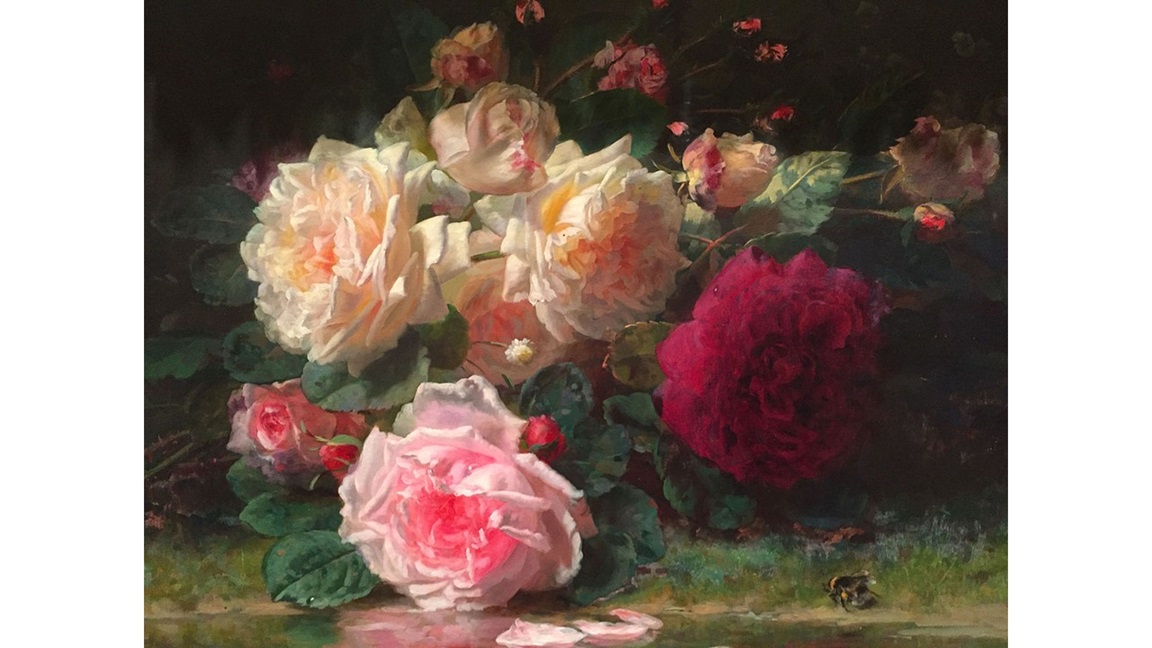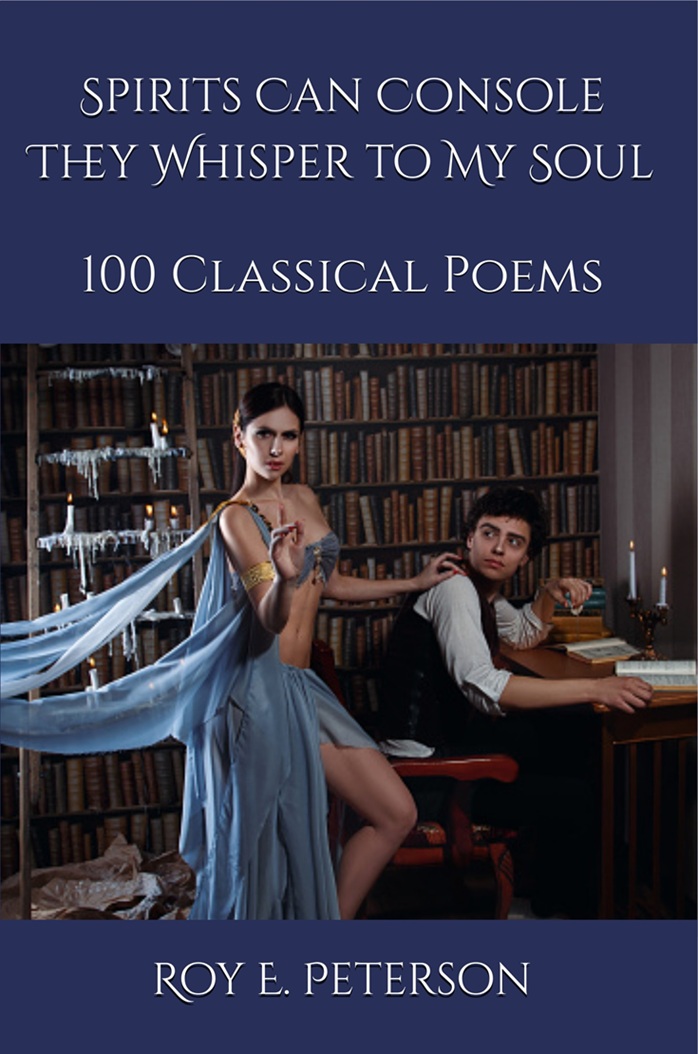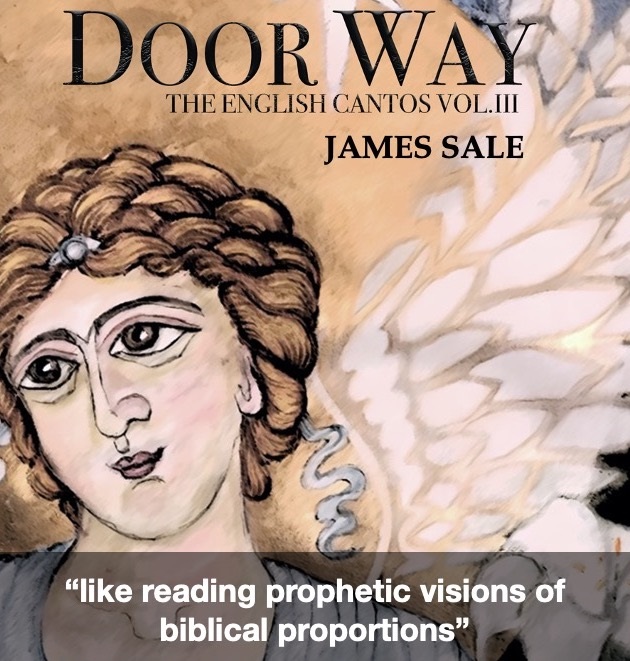.
The Twilight’s Last Gleaming?
The waning moon is framed by crippled branches;
One long white stripe of cloud-chalk intersects
Another: an immense, prophetic X.
The skyline’s red is flagging; in the trenches
Of twilight’s short-lived gleaming, fireflies flare,
Oblivious to signs that loss is looming.
Dark cloudbanks shroud the blue; a deep entombing
Is palpable, pervading earth and air.
On heaven’s spangled banner, all the stars
Are flashing Morse code for impending wars.
Unless our looked-for Morning Star appears
Before dawn’s early light, our long-felt fears
May find fulfillment. As the moment nears,
We pray that we will see a rising sun—
And that this will not be our setting one.
.
.
The Madness of the Peoples
“… who stilleth the raging of the sea, and the noise of his waves, and the madness of the peoples.” —Psalm 65: 7
Almighty God, who turns the hearts of kings
Like rivers, where You will—whose waters stood
As walls to save your people—here, a flood
Of humankind is raging, overflowing
With every evil. Poison seafoam pours,
From souls that hate You, over all the borders
You’ve set for man’s protection. Raging waters
Overwhelm our land; this torrent roars
Its envy and its anger at your power.
Pride, lust, and avarice make waves that tower,
Attempting to destroy your well-built shore.
Men want to be as God, and will make war
With any force that other men adore.
The fountains of your deep seem to be broken.
We pray that you would move upon the face
Of this mad human ocean with your grace
Again, so that—as when You first had spoken
The world into its orderly array,
The chaos heard your voice and sped away—
The peoples will be stilled, and choose to stay
Within your edict’s bounds. Your majesty
Will then clothe earth, as waters clothe the sea;
And all will know whom winds and seas obey.
.
.
Cynthia Erlandson is a poet and fitness professional living in Michigan. Her second collection of poems, Notes on Time, has recently been published by AuthorHouse, as was her first (2005) collection, These Holy Mysteries. Her poems have also appeared in First Things, Modern Age, The North American Anglican, The Orchards Poetry Review, The Book of Common Praise hymnal, and elsewhere.

















This is bold poetry: the direct address to God is Psalmist-like in its desperation and in its faith – despite the apparent evidence that evil will overwhelm the world . O Morning Star, indeed. I like these works very much.
Thank you, James. I don’t know if any poetry is truly original; and the Psalmists surely give us much to echo, in both sound and thought.
Cynthia, both of these are fantastic poems! I admire the imagery (use of color, astronomy) and cautionary message of “Twilight’s Last Gleaming” but of the two, my favorite is “The Madness of the Peoples” not just because it is so skillfully crafted but because I think the message is a deep and deeply-felt one. I am with you in concern about the tsunami of horrors that an arrogant, atheist culture of people who hate God has devised and I pray for the day when “all will know whom winds and seas obey.” Well done!
Thank you so much, Brian. Psalm 65: 7 is such a profound and also beautifully musical verse, that I have long known I wanted to use its imagery and parallelism in a poem. If I were a visual artist, (which I’m definitely not), I would have tried to illustrate the verse by drawing stormy waves made of tiny people — something like the artist Gwang-Hyuk Rhee did when he made entire portraits out of tiny words; the viewer could only see the words by getting up very close to the drawing.
These are both marvelous Cynthia. I will be sharing them far and wide today. Thank you!
Thank you, Russel; I’m always grateful to have my work shared.
Cynthia, the first poem brings to mind the current volcanic eruption of Cumbre Vieja. According to programming I’ve watched, if part of it slips into the ocean, it would cause massive tsunamis that could envelop our eastern seaboard. There’s also the very real possibility of a kinetic war with China. Natural or man-made, the potential for disaster always surrounds us.
Thank you, Cheryl, for making this connection; I had not been aware of Cumbre Vieja, but looked up a story, and it certainly fits in with the ominous signs.
The first poem’s sustained references to our national anthem are expertly crafted, especially the oblique ones of “The skyline’s red is flagging” and “fireflies flare.” Both of these recall the cannonades against our flag at Fort McHenry. The fact that the poet sets the scene at twilight and evening, and hopes for the coming of a new dawn, recalls the fact that the shelling of Fort McHenry was a night-time event, and our “star-spangled banner” was still flying when the morning came.
It also should remind us of those lines from our national anthem that are very rarely quoted, as an aftermath to the battle:
And where is that band who so vauntingly swore
That the clamor of war and the battle’s confusion
A home and a country would leave us no more?
Their blood has washed out their foul footsteps’ pollution.
Let’s hope it will be that way again.
Thank you very much; and I am glad you included a fascinating part of the anthem that I had not previously known.
Cynthia, thank you for sharing these lovely poems. After reading the second, I said aloud as if in prayer, “Let your Kingdom come!” Thanks again for sharing and keep up the very fine work.
Thank you — yes, I find myself often saying, “Come quickly!”
Brilliant and unusual imagery, particularly in the first poem, without a trace of appearing contrived. In the second you don’t mince words. I particularly like “Poison sea-foam pours from souls that hate you.” Well done!
I’m so glad you liked it, Peter. I had a good time experimenting with the water imagery.
The apocalyptic sense of these is riven with hope, I’m glad to say.
Majestic descriptions. It always seems to me that water is more destructive than flame – though both are needed to survive.
I like the intersects/X rhyme. The rhymes have a strong bond. I imagine trenches snaking out like branches – the ghoulish looming of entombing –
a flare has to have air – stars can be considered to be internal wars – there are prayers to have the one sun …
well done.
Thank you very much for this poetically-written reply, Damian! And your observation of the irony of water and fire being both life-giving, and destructive, is very insightful.
Cynthia, I love the atmospheric wonder of “The Twilight’s Last Gleaming?” The glimmer of hope in the question mark of the title is a masterstroke… we need to realize what is going on before it is too late… I hope and pray many are waking up. I also like the national anthem imagery… it adds to the message.
“The Madness of the Peoples” speaks poetically, clearly and honestly about the world we live in. The last line really hits home for me. The hubris of humankind has led many to believe that King-Canute-style, the Government has the ability to control the tides – “And all will know whom winds and seas obey” says it all. Thank you, Cythia.
Thank you very much, Susan! I have admired so much of your poetry, and am really pleased at your reaction to these. Yes, our country and the world need an awakening, and many prayers. Thanks also for the appropriate reference to the story about King Canute.
Cynthia, these are exceptionally fine adaptations of our national anthem and of Psalm 65. Especially with the psalm, your imagined situation is very different from the original, yet I see it working well with the entire Hebrew poem of praise and thanksgiving. Your poem’s confidence arises not from the Davidic lines, as beautiful as they are, but from that final allusion to the Son of David in the Gospel. This suggests that there may be a long time between hope and fulfillment, and in our current situation, that seems a humble and lovely way to poetically place everything in God’s hands.
Thank you so much, Margaret — I’m really glad that you saw some of the things I hoped would be seen. I’ve long been fascinated by links between the two Testaments. I hope that the time you mention, between hope and fulfillment, is not as long for us as it was for the Old Testament saints who looked for the Fulfillment of which the prophets spoke. I’m grateful for your thoughtful comments.